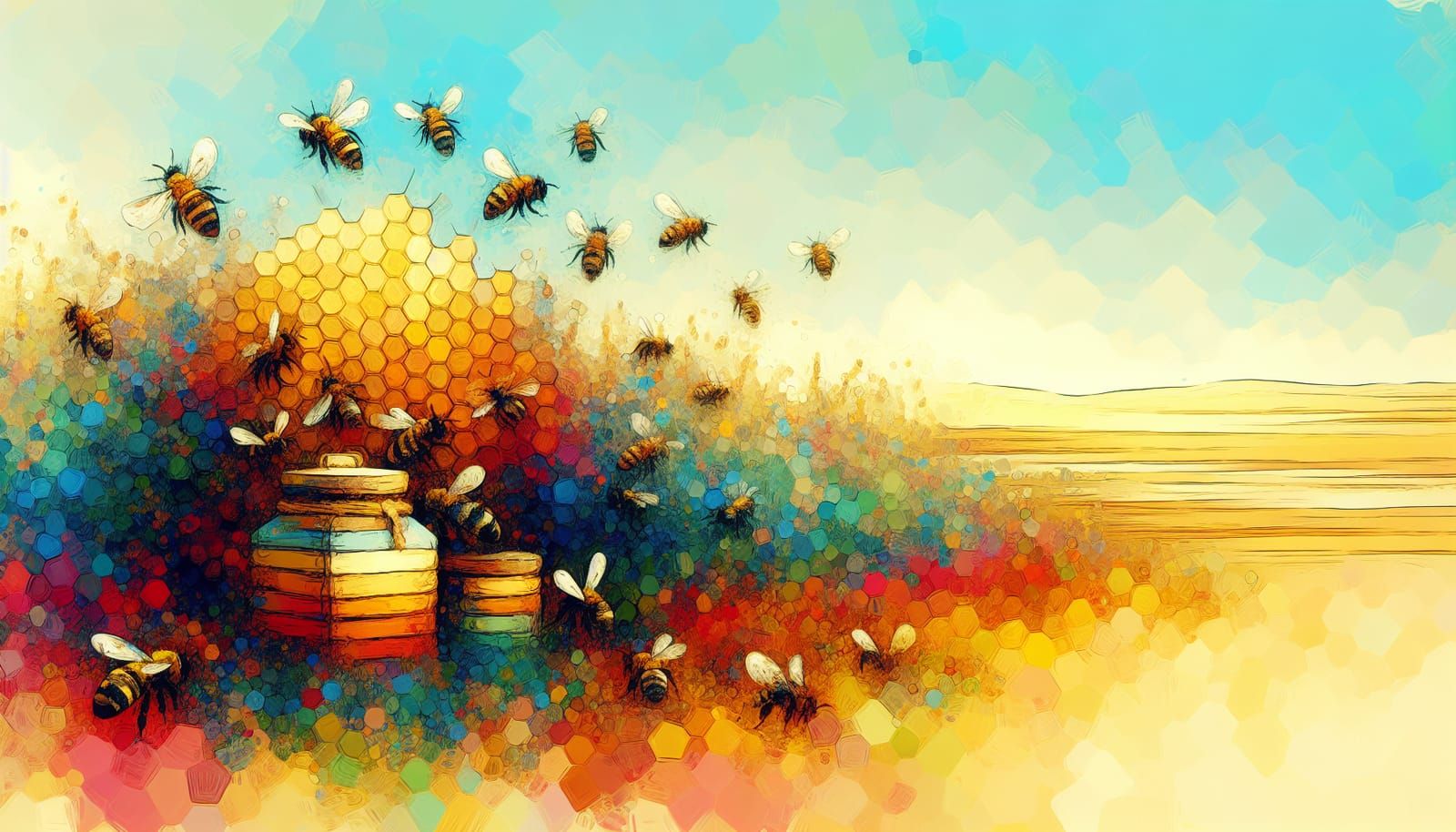At Pondville Correctional Center in Norfolk, Massachusetts, an exciting new initiative is taking flight, allowing some incarcerated individuals to don a beekeeper’s veil alongside their regular uniforms. This innovative pilot program immerses participants in the captivating world of beekeeping, blending hands-on learning with valuable life skills.
Thanks to the generosity of Susan Goldwitz, a spirited 75-year-old retired English teacher, this program is now a reality. After donating to the state’s Department of Corrections, she transformed her personal passion into a remarkable opportunity for those in the community who are incarcerated.
Susan Goldwitz enthusiastically shares her insights about what it takes to be a successful beekeeper. She emphasizes the qualities of planning, impulse control, focus, mindfulness, and empathy as essential traits for both beekeepers and the individuals she has taught in correctional facilities. “These were qualities that I realized that people I was teaching at the correctional facilities would benefit from,” Goldwitz said. “It’s exactly what I want my students who are incarcerated to be learning about.”
Earlier this year, the program’s partner, Best Bees, introduced two lively hives containing 40,000 bees to the facility. Since then, Goldwitz and the dedicated staff have been nurturing the hives while gauging the interest of the incarcerated individuals. The response has been overwhelmingly positive, with many expressing curiosity about how they can participate. “It’s generating a lot of interest, and that’s the main goal: to generate interest and curiosity and, hopefully, turn this into a skill that they can utilize when they get out,” said Joseph Salvucci, the director of treatment and classification at the facility.
To join this uplifting program, individuals need to meet a few simple criteria, including passing a bee allergy screening and being within 18 months of their release or parole. The aim is to welcome participants by February 2026, with plans for around a dozen individuals to engage in both classroom and outdoor learning experiences.
Once onboarded, participants will receive training in hive maintenance, honey collection, and environmental education. This program not only equips them with practical skills but also fosters a deeper understanding of ecosystems and insects, opening doors to future opportunities upon their release.
Pondville Correctional Center offers more than just beekeeping; it also features various pre-release programs, such as assistance-dog training, English-language workshops, and automotive training. “This particular program is unique because it gets folks outside and engaging with nature, giving them an opportunity to develop skills that help when they re-enter back into the communities,” said Shawn Jenkins, the Department of Corrections Commissioner.
The beehives are already making a positive impact, contributing to the facility's garden, which is nurtured by both volunteers and incarcerated individuals. The bees play a vital role in pollinating the plants, resulting in a bountiful harvest. Since August, over 400 pounds of fresh produce have been donated to a local food bank, highlighting the program's far-reaching benefits.
Additionally, the hives have started producing honey, with experts from Best Bees harvesting it for use in the facility’s culinary programs. “Having a hive at the Pondville facility allows us to share the inspiration of honeybees with people who might not otherwise have that opportunity,” said Paige Mulhern, director of brand at Best Bees. “This hive has become a unique point of connection — linking our beekeepers, the incarcerated individuals, and the bees in a shared experience of resilience and interconnectedness.”
For Goldwitz, the essence of this program lies in the message that nature can serve as a powerful tool for healing. “It is not just learning entomology, it is not just learning about insects and science. Bees are a catalyst and a metaphor for the way people can work together and individually toward the benefit of the whole community,” she explained. “This program is a step toward healing and incorporating nature into the process.”
With the program set to be fully operational by February, the future looks bright for those involved, fostering personal growth and community connection in beautiful and meaningful ways.


